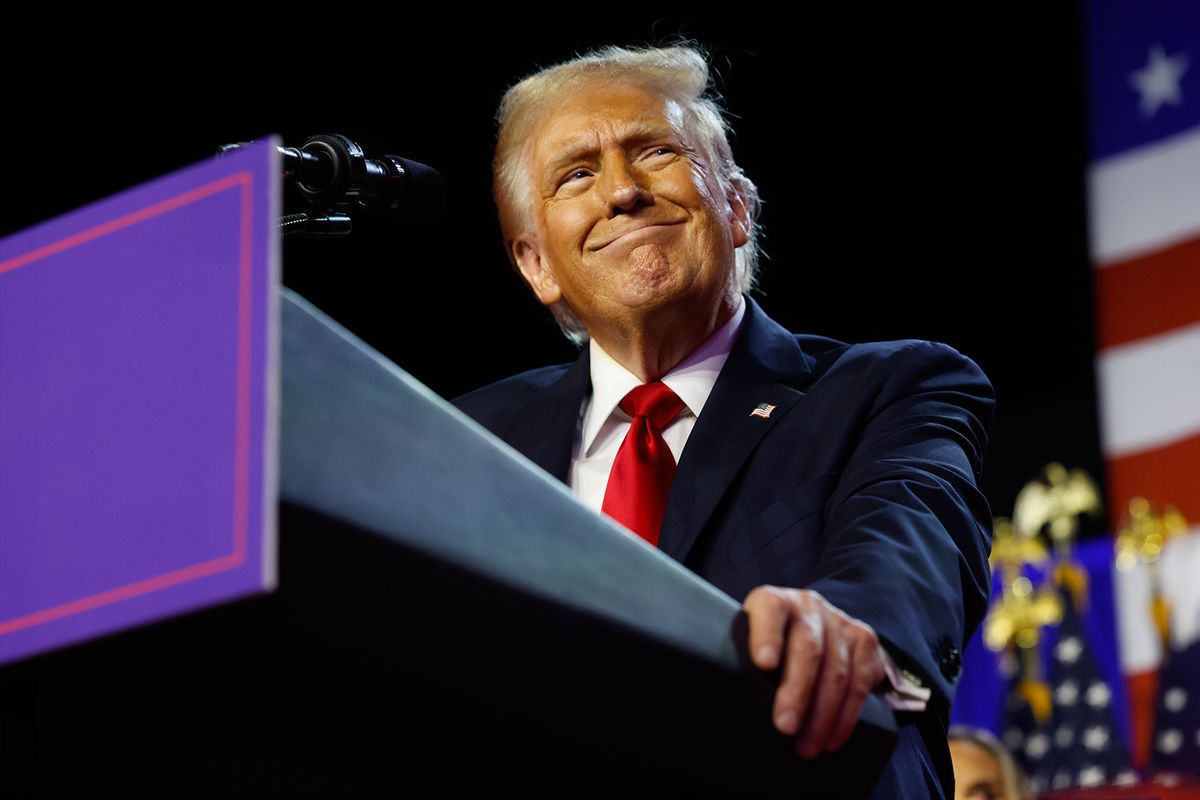Once President-elect Donald Trump enters the White House next year, he will have the power to summarily dismiss the the remaining legal cases arrayed against him — and has said he would use that power.
With control of the Justice Department, Trump can fire special counsel Jack Smith, who is managing two federal cases against Trump: one regarding the then-president's role in subverting the 2020 election, and another regarding his alleged mishandling of classified documents after leaving office and then obstructing the government's attempts to retrieve them. Doing so would effectively end the cases against him. Because the documents case is currently being appealed after first being dismissed by Judge Aileen Cannon, Trump can also order the Justice Department to simply abandon the appeal.
Trump has made no secret of his intentions. "It's so easy. I would fire [Smith] within two seconds. He'll be one of the first things addressed," he told conservative radio host Hugh Hewitt, adding that he also planned to sue the special counsel. It's unclear on what grounds Trump plans to sue, though he has characterized the federal cases as a corrupt and politically motivated "witch-hunt."
Firing Smith might not even be necessary to earn his get-out-of-jail-free card: He could just ask his attorney general to drop the case. And according to longstanding department policy and the Office of Legal Counsel, a sitting president cannot face indictment of criminal prosecution as it "would impermissibly undermine the capacity of the executive branch to perform its constitutionally assigned functions."
Trump could also consider pardoning himself; the only explicit guidance against that is a Watergate-era Justice Department memo. Without any existing precedent, he would be well within his rights to litigate that before the Supreme Court.
Shutting down the pending state-level cases against him will be a less straightforward task. Trump cannot directly fire Manhattan District Attorney Alvin Bragg, who convicted the president-elect on 34 counts of falsifying business records to cover up hush money payments to adult film actress Stormy Daniels. Nor can he fire Fulton County District Attorney Fani Willis, who is prosecuting Trump on charges of election racketeering, including an attempt to pressure Georgia officials into "finding" him votes during the 2020 election.
We need your help to stay independent
But his lawyers are signaling that his victory will preclude any federal or state-level sentencing against him, at least until he presumably leaves office again in January 2029.
“If your client does win the election in 2024, could he even be tried in 2025?” Georgia Judge Scott McAfee asked at a hearing last December.
“The answer to that is, I believe, that under the Supremacy Clause and his duties as president of the United States, this trial would not take place at all until after he left his term of office,” replied Trump attorney Steve Sadow.
Judge Juan Merchan, who oversaw Trump's hush-money case, delayed the sentencing until Nov. 26 to avoid any entanglements with the election campaign. If Merchan proceeds and sentences Trump to up to four years in prison, the president-elect will almost certainly escape that sentence until at least January 2029. Even a lighter sentence, like community service or home confinement, will be challenged by his lawyers, who could argue that logistical challenges and constitutional duties should shield any president from having to serve such a sentence. It's also possible that the sentencing does not move forward at all.
There's already a drumbeat of Republicans calling for the removal of all cases, citing Trump's sweeping election victory as a popular rejection of prosecuting him. "The American people have rendered their verdict on President Trump and decisively chosen him to lead the country for the next four years. They chose him to lead us with full knowledge of the claims against him by prosecutors around the country," Bill Barr, Trump's former attorney general, said in a statement. "I think Attorney General [Merrick] Garland and the State prosecutors should respect the people's decision and dismiss the cases against President Trump now."
With certain GOP backing, Trump will reclaim a presidency recently empowered by the Supreme Court's decision to grant him immunity for official acts, in effect giving him a blank check to justify any illegal conduct under the guise of carrying out his duties. “Ironic isn’t it?" snapped Justice Sonia Sotomayor, reading aloud her dissent at the time of the decision. "The man in charge of enforcing laws can now just break them."
Trump, critics say, has given clear signals that he will.
Read more
about Trump's legal cases



Shares